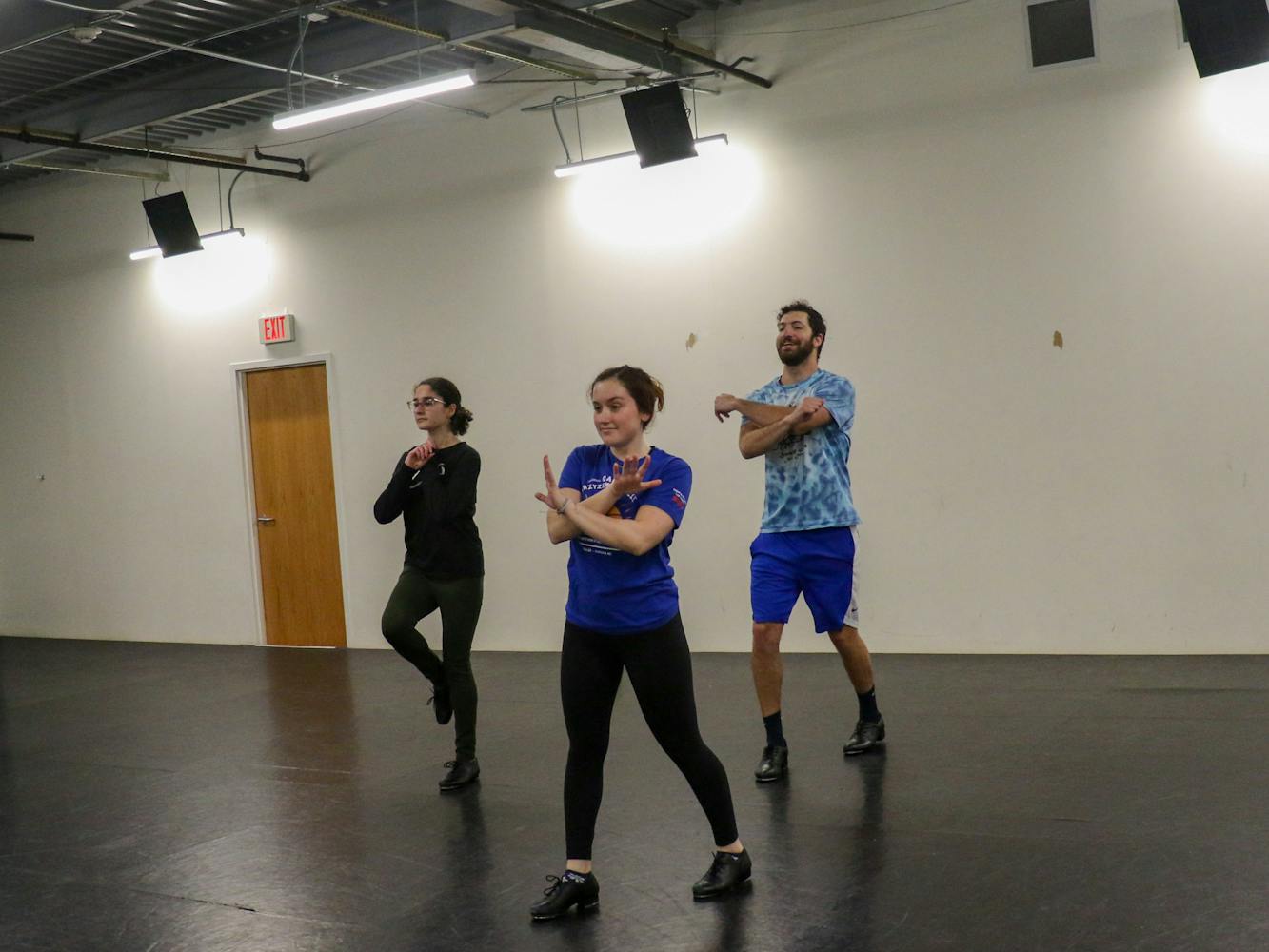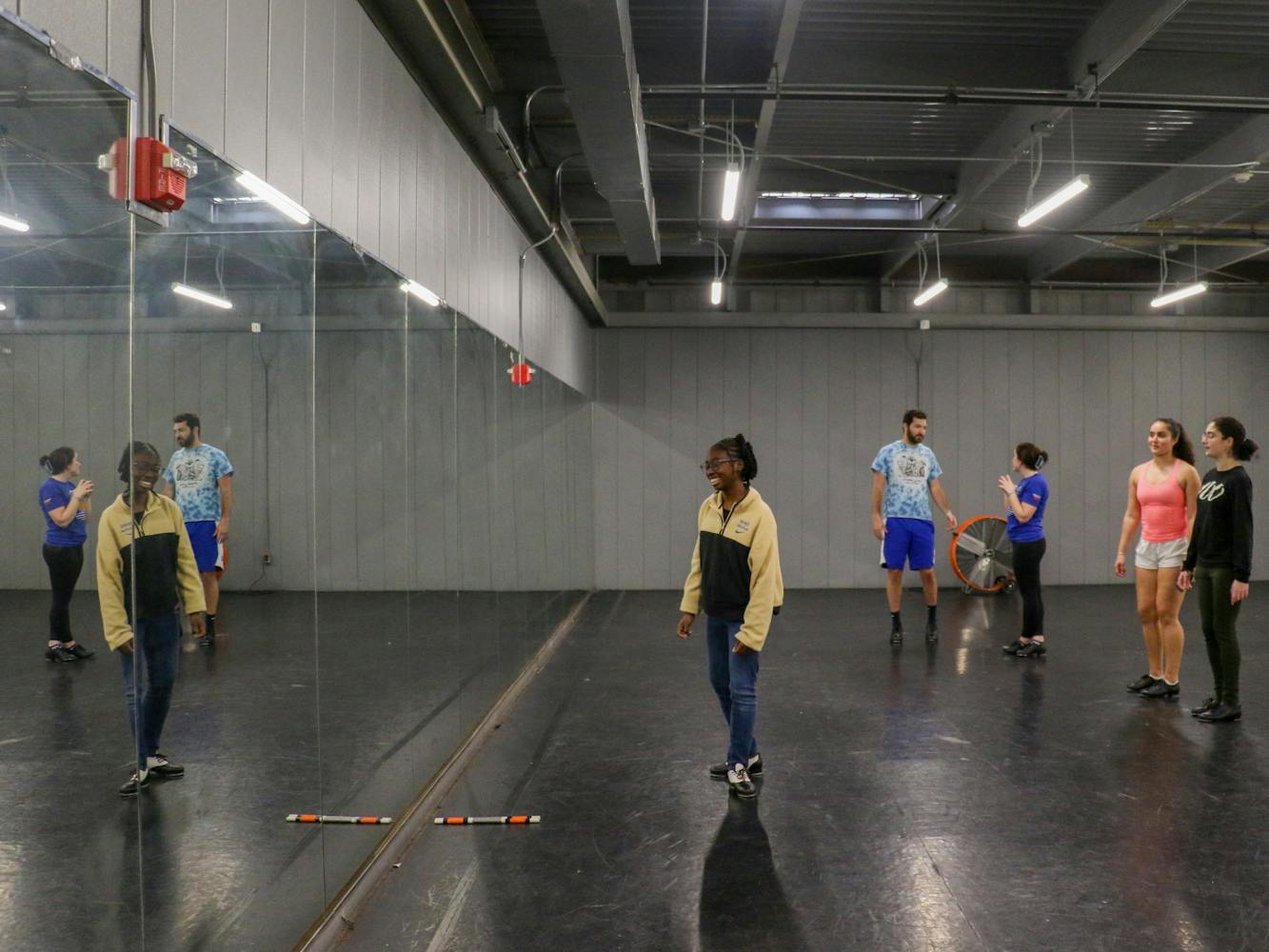Dance culture is widespread at Duke University. As the semester comes to a close and many dance groups on campus hold their spring showcases, The Chronicle took a look at the first five dance groups founded at Duke. Capturing their energies, their histories and their commitment through photographs and short interviews, our reporters worked to highlight this crucial part of on-campus life.
The Chronicle spoke with Duke On Tap's logistics chair Trinity Johnson, a junior, and On Tap Social Chair Sneha Sengupta, a sophomore, about On Tap's mission and involvement with both the Duke and Durham communities. This interview has been lightly edited for length and clarity.
The Chronicle: Walk me through how On Tap was founded.
Trinity Johnson: I unfortunately don't know. Most of what I know about the club's history is from pre-COVID, but not all the way back to when it was founded. I think I saw somewhere that it was founded in the '90s, but I am not sure about how we were founded or who founded it.
TC: What is the mission of On Tap?
TJ: Broadly, just enjoying tap. But one thing we've started trying to move towards is incorporating other dance styles and thinking of tap in more new and innovative ways.
A lot of us come from different tap backgrounds — there's Broadway tap, there's more musical theater-esque tap, but then there's also street tap, which is a lot more grounded. Recently, a lot of us have been playing around with the idea of those different styles, but also how we can incorporate other elements to tap that you don't see all the time.
One of our members this year does contemporary and tap, so she's thinking a lot about how to make tap more visual, as opposed to sound-based.
TC: Walk me through special events or traditions On Tap organizes.
TJ: One of my favorite traditions that we do is called a paradiddle [a four-part tap-dance rhythm on the same foot]. You can do paradiddles really slow or really fast.
A lot of times right before we go on stage, we'll get into a circle and start it off super slow. Then we'll just gradually build it up until we're going really fast. It's just so fun because it's such a simple step. Sometimes, we'll record an overhead shot, and you can see all the taps going super quick.
Sneha Sengupta: Mine is also the paradiddle. When the sound lines up perfectly, it's just the most wonderful thing.
TC: How does this group interact with Duke and teach others about tap?
TJ: We don't do any community performances, since tap is a little too niche. We've been wanting to do workshops throughout the school year, but finding time that works for other students and the whole team is difficult.
We put on our tap-specific performance in our spring showcase in April. In Duke's showcases, we perform in Awaaz, hosted by DukeDiya as well as in Momentum as a guest performer. This year, we also performed during the Centennial celebration.
Participating in these collaborative performances is really fun because we are able to reach people who may not come to watch us perform otherwise. Since tap is so niche, people aren't necessarily going out of their way to go watch us if they don't know somebody who's on the team.
TC: How has your membership in this group affected how you experience tap dance?
TJ: I've loved it. I've tapped since I was a child, but there was a point when I felt like I wasn't necessarily growing as a tap dancer.
During my senior year, we got a new teacher, and that's when I saw that growth again, because I think she could tell that I could push myself harder. And she was like, “No, I'm gonna make you try this harder step, I'm gonna make you try this harder step.”
And then I get to Duke and I get to join On Tap. And there were so many moves — oh my god, they were just so cool to me. They were doing so many things that I was like, “Wait, I have no idea how this step even works.” It felt like that push that she was giving me continuing on.
I feel like I've just been able to grow as a tap dancer a lot, and I also feel like I've gotten to do new things even when it comes to music and stuff, because of our style.
SS: I agree with Trinity. The fact that coming to Duke, there's so many styles of tap and so many different levels of difficulty — you use the same move, but the way in which you use it is so difficult. It can be used in so many different ways for so many different difficulty levels.
Everyone's experiences are so unique that you're able to learn and grow from one another, which really helped all of us as dancers, because you're constantly learning every week.
I think coming from a small town, it's kind of surprising — not that I'd be learning more, but that there were so many different styles because I was raised on just a couple of styles. Being able to learn from everyone, and learn from their experiences has been really unique.
Get The Chronicle straight to your inbox
Signup for our weekly newsletter. Cancel at any time.








